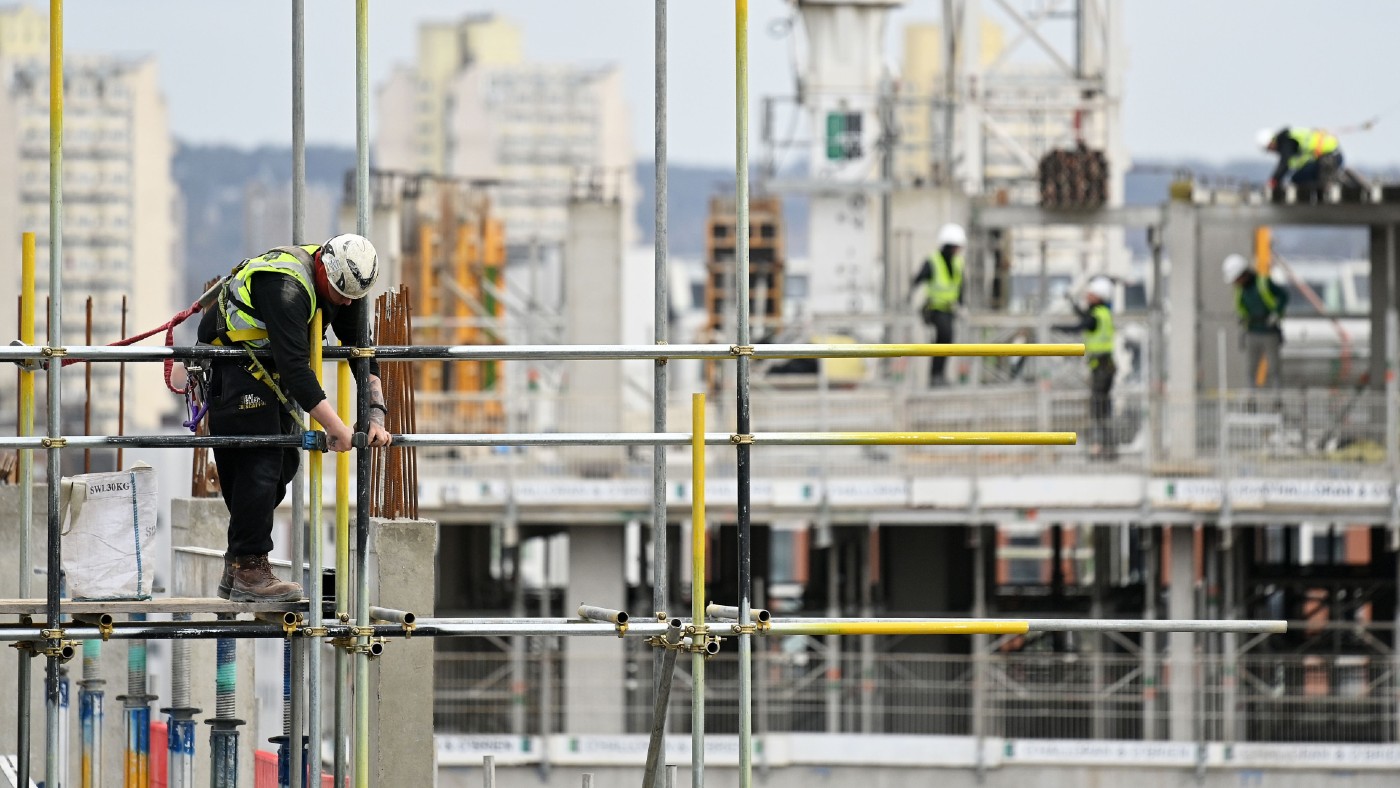UK economy shows resilience in first quarter of the year
Pret checks out Tesco store openings, Heathrow boss calls for green list expansion, and other breaking business news

A free daily email with the biggest news stories of the day – and the best features from TheWeek.com
You are now subscribed
Your newsletter sign-up was successful
1. GDP contracted by 1.5% in Q1 - but grew 2.1% in March
Economy
The UK’s locked-down economy shrank by 1.5% in the first quarter of the year, according to figures by the Office for National Statistics (ONS). Gross domestic product (GDP) contracted by 1.5% in Q1, following a 1.3% growth in Q4 2020.
The quarter did end on a positive note, however, with schools reopening across England and Wales and retail trade sales continuing to show strength. Real GDP is estimated to have grown by 2.1% in March - the fastest monthly growth since August 2020. The construction (5.8%), services (1.9%) and manufacturing (2.1%) sectors all recorded growth in March.
The Week
Escape your echo chamber. Get the facts behind the news, plus analysis from multiple perspectives.

Sign up for The Week's Free Newsletters
From our morning news briefing to a weekly Good News Newsletter, get the best of The Week delivered directly to your inbox.
From our morning news briefing to a weekly Good News Newsletter, get the best of The Week delivered directly to your inbox.
Experts believe the resilience of businesses throughout the latest lockdown will result in “2021 seeing the strongest annual growth since the Second World War”, Sky News reports.
Chancellor Rishi Sunak said that despite a difficult start to the year, economic growth in March is a “promising sign of things to come”.
2. Heathrow boss calls for expansion of travel green list
Tourism
Heathrow Airport chief executive John Holland-Kaye has urged the government to expand the travel green list “massively” when it is reviewed. A “traffic light” system has been introduced and from 17 May the travel ban will be lifted and people from England will be able to visit 12 green list countries, including Portugal, Iceland and Gibraltar.
A free daily email with the biggest news stories of the day – and the best features from TheWeek.com
“The government’s green list is very welcome, but they need to expand it massively in the next few weeks to include other low risk markets such as the United States, and remove the need for fully vaccinated passengers to take two expensive PCR tests,” Holland-Kaye said. “Border Force’s claims that ‘long queues in immigration are inevitable’ smack of complacency – they are completely avoidable if ministers ensure that all desks are staffed at peak times.”
3. Pret checks out Tesco to attract WFH consumers
Retail
Pret a Manger will trial opening stores in Tesco supermarkets in a bid to reach customers who are now working from home (WFH). The coffee and sandwich chain plans to open four in-store shops as part of the experiment with the first opening in June in the Kensington area of London, Sky News reports.
“As the UK emerges from lockdown, this partnership with Tesco is one way in which we’re transforming our business model to adjust to a new way of living and working,” said chief executive Pano Christou.
4. Shops ‘not out of the woods’ yet
Retail
Shops across the UK have made a promising start to the year with consumers returning to high streets. But despite lockdown restrictions easing, the British Retail Consortium (BRC) says the industry is “not out of the woods” just yet, Yahoo Finance! reports.
Figures published by the BRC and KPMG showed that total sales in Britain increased by 7.3% in April, compared to the same month in 2019. BRC chief executive Helen Dickinson says that while it is great to see customers feeling confident visiting shops, sales growth was “fragile”, with high streets still having “a long way to go on the path to recovery”.
5. Greenpeace: deep-sea mining permits could be unlawful
Environment
Greenpeace and the Blue Marine Foundation say that deep-sea mining exploration licences granted by the UK government are “riddled with inaccuracies” and could be unlawful, The Guardian reports. Issued a decade ago to UK Seabed Resources, a subsidiary of the US arms multinational Lockheed Martin, the licences have only recently been disclosed.
“These licences are riddled with so many errors and inaccuracies that their very lawfulness is thrown into question,” said Louisa Casson, of Greenpeace’s Protect the Oceans campaign. “For nearly a decade, our government has hidden these important documents from public scrutiny, and now it’s clear why: they starkly expose the gap between the government’s rhetoric and its action when it comes to protecting our oceans.”
-
 6 of the world’s most accessible destinations
6 of the world’s most accessible destinationsThe Week Recommends Experience all of Berlin, Singapore and Sydney
-
 How the FCC’s ‘equal time’ rule works
How the FCC’s ‘equal time’ rule worksIn the Spotlight The law is at the heart of the Colbert-CBS conflict
-
 What is the endgame in the DHS shutdown?
What is the endgame in the DHS shutdown?Today’s Big Question Democrats want to rein in ICE’s immigration crackdown